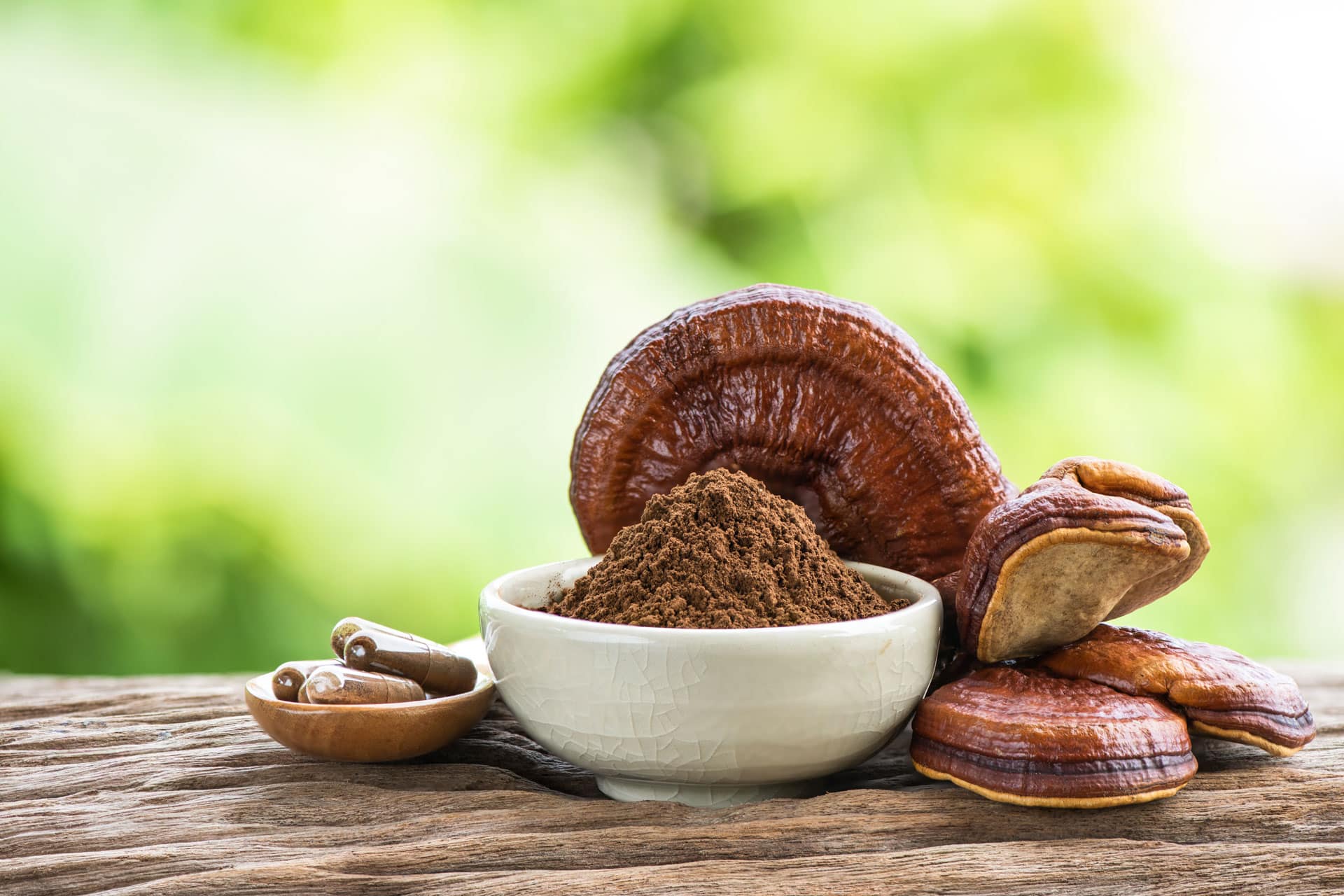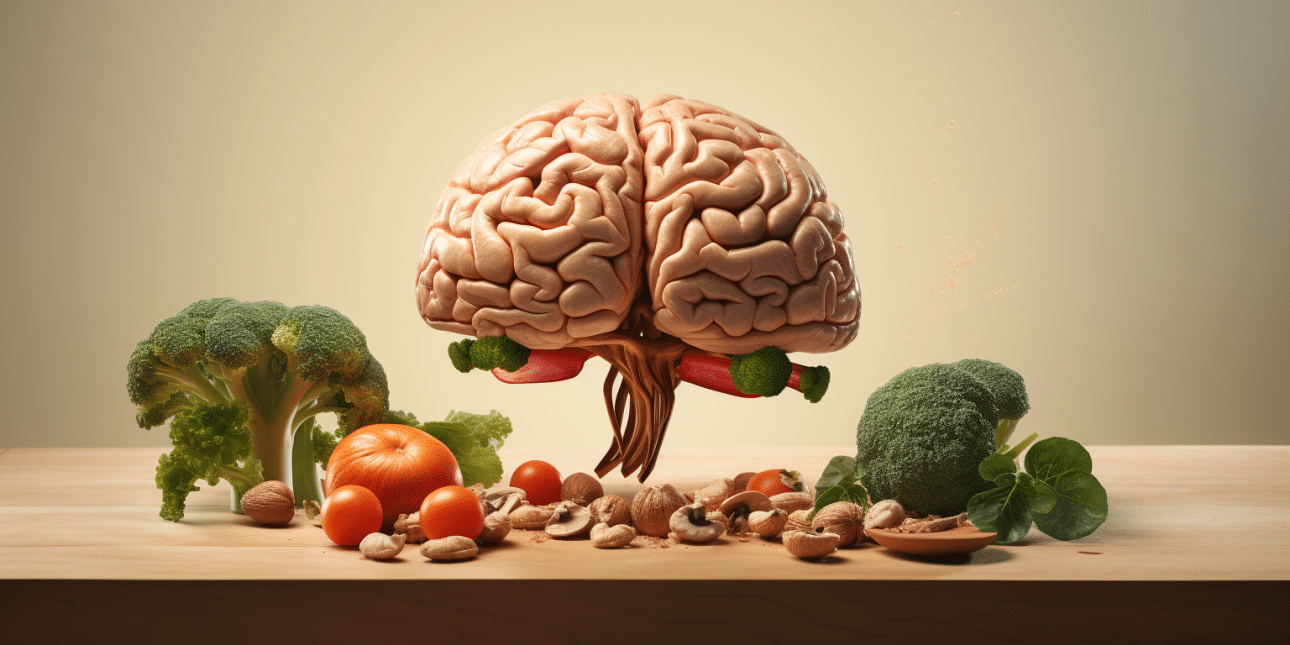Functional mushrooms such as reishi, lion’s mane, and cordyceps can contribute to mood regulation and overall mental wellbeing by acting on neurotransmitters, producing “happy hormones,” balancing the immune system, promoting digestive wellness, reducing anxiety and depression, aiding in sleep quality, and boosting energy levels.
Table of Contents
ToggleFunctional Mushrooms and Mood Regulation
Medicinal mushrooms, integral to Eastern healing practices, offer numerous health benefits, including anti-aging properties and cancer-fighting abilities, while functional mushrooms have been shown to regulate anxiety and help maintain the brain’s chemical balance, thus improving overall mood and mental health.
Brief Overview of Medicinal Mushrooms
Medicinal mushrooms, a unique and powerful version of fungi, have been a cornerstone of Eastern healing practices for thousands of years, far surpassing the health benefits typically associated with your average white button mushroom. In fact, these special types of mushrooms have been so highly regarded that their use can be traced back to ancient Chinese medical texts dating as far back as 206BC, where reishi mushrooms were hailed as a tonic against ageing.
The medicinal properties of mushrooms are not just limited to anti-ageing benefits. Across Asia, more than 100 varieties of these potent fungi have been implemented in the fight against cancer, showcasing the immense potential and versatility that medicinal mushrooms possess in promoting health and longevity.
Connection between Functional Mushrooms and Mood
When it comes to managing our mental well-being, functional mushrooms have shown a significant capacity to regulate anxiety. The importance of this cannot be understated, as high levels of anxiety can lead to an increased risk of chronic health conditions due to its detrimental effects on the autonomic nervous system.
Understanding the root cause of mental health disorders often leads us back to the brain’s chemistry. When the delicate balance of neurotransmitters in our brains is disrupted — whether by stress, poor diet or lack of sleep — disorders such as anxiety or depression can arise. Fortunately, functional mushrooms can play an instrumental role in restoring this balance and improving our overall mood and mental health.
Understanding Functional Mushrooms
Mushrooms such as reishi, lion’s mane, and cordyceps contribute to improving physical health and mental wellbeing in several areas such as balancing the immune system, aiding in sleep quality, and boosting energy levels.
Do you need custom white label functional mushroom products produced for your cannabis business?
SEE WHAT WE CAN DO
Do you need custom white label functional mushroom products produced for your CBD business?
SEE WHAT WE CAN DO
Definition of Functional Mushrooms
Functional mushrooms, a subset of medicinal mushrooms, are typically consumed in their extracted form—either as a powder or a capsule. This allows for the concentrated benefits of these fungi to be easily incorporated into your daily regimen. Among the many types of functional mushrooms, three stand out for their significant impact on reducing anxiety: reishi, lion’s mane, and cordyceps.1
Health Benefits of Functional Mushrooms
Functional mushrooms provide health benefits such as balancing the immune system, aiding with sleep, and boosting energy levels, through compounds like beta-glucans that promote digestive wellness and combat disease, adaptogenic qualities that improve sleep quality, and natural energy-boosting properties found in varieties like cordyceps.
Balance the Immune System
One of the remarkable benefits of functional mushrooms is their ability to balance our immune system. They help maintain an optimal state, bolstering our body’s defenses when necessary and pulling back when everything is functioning smoothly. This balancing act is largely due to a compound called beta-glucan—a polysaccharide carbohydrate found within the cell walls of these fungi.2
The consumption of functional mushrooms not only supports our immune health but also promotes digestive wellness due to the presence of beta-glucans. Furthermore, it’s been suggested that a robust gut health is inversely linked with anxiety, depression, and other mental health disorders.
Notably, specific components found in reishi mushrooms can potentially strengthen our immune system enough to battle cancer cells effectively. On top of this, mushroom consumption has been associated with significantly lower odds of developing mood disorders.
Aid with Sleep
Reishi, known as “the mushroom of immortality,” showcases potent anti-inflammatory properties along with stress-relieving and immune-supporting abilities. The adaptogenic qualities inherent in reishi also contribute to improving sleep quality by helping the body adapt to stressors and promote relaxation.
Studies suggest that regular consumption of reishi may reduce the amount of time it takes for someone to fall asleep, thereby increasing overall sleep duration and improving restfulness.3
Boost Energy
Cordyceps mushrooms have been long revered in traditional Chinese medicine for their multifaceted benefits. Not only were they used to bolster lung and kidney health but also to enhance sexual function and libido. Known for their natural energy-boosting properties, cordyceps serve as a natural source of vitality and endurance—perfect for those looking for a sustainable way to increase energy levels without relying on caffeine or other stimulants.
How Mushrooms Help Anxiety
Functional mushrooms contribute to anxiety relief and mental health improvement by acting like certain neurotransmitters, supporting a healthy inflammation response, and providing robust nutrients that optimize neurogenesis and neuroplasticity in the hippocampus.
Role of Mushrooms in Relieving Anxiety
When it comes to anxiety, an array of neurotransmitters play pivotal roles. These include serotonin, dopamine, opioid peptides, endocannabinoids, neuropeptide Y, oxytocin, acetylcholine, and corticotropin-releasing hormone. Interestingly, mushrooms may help mitigate anxiety by acting in a manner similar to some of these neurotransmitters.
Moreover, chronic inflammation is increasingly being recognized as a potential mechanism underlying anxiety disorders. Mushrooms are rich sources of compounds that support a healthy inflammation response. These include polysaccharides such as beta-glucans, as well as fatty acids, carotenoids, vitamins, minerals, mycosteroids, phenolic and indolic compounds, and ergothioneine.
Explanation of Neurogenesis and Its Connection to Anxiety
Contrary to previously held beliefs that the brain stops developing new neurons after a certain age, we now understand that the human brain continues to generate new neurons—a process known as neurogenesis.4 This process is limited to the hippocampus, an area responsible for learning memory and emotions.
Approximately 700 new neurons are added to the hippocampus every day. This ability to form new neurons and connections—termed neuroplasticity—can sometimes result in unwanted patterns. However, there’s growing evidence that it may be possible to harness this power of neuroplasticity to enhance cognitive abilities and improve mental health.
Influence of Mushrooms on Neurotransmitters and Mental Health
A variety of factors can influence the process of neurogenesis. These include diet, aging, brain injury, brain inflammation, oxidative stress stress, lack of exercise, and opioid addiction. The good news is that functional mushrooms have the potential to positively influence these factors.
By offering a source of robust nutrients and compounds that support healthy brain function and overall wellbeing—such as beta-glucans—mushrooms can aid in maintaining optimal levels of neurogenesis while providing essential support for mental health. The result? A natural approach to managing anxiety that works in harmony with your body’s own processes.
Best Mushrooms for Mood Enhancement
Reishi mushrooms may enhance mood and promote general well-being through their potential anxiety-reducing and sedative properties, lion’s mane can potentially improve mood and mental well-being by increasing levels of “happy hormones,” while cordyceps could augment mood and promote psychological resilience by supporting the body’s natural response to stress.
Reishi
Reishi mushrooms, rich in over 400 compounds including Beta-glucan, possess therapeutic properties that can stimulate immune responses, alleviate anxiety, exert a sedative effect on the central nervous system, and enhance mood, thereby promoting general well-being.
Therapeutic Properties
Reishi mushrooms are a powerhouse of over 400 different compounds that may assist the body in various ways. These include polysaccharides, triterpenoids, steroids, fatty acids, amino acids, proteins, nucleosides, and alkaloids.
One of these compounds, a polysaccharide known as Beta-glucan, contributes to immunological mechanisms by activating T lymphocytes and macrophages. This results in the release of cytokines and the activation of B lymphocytes, NK dendritic cells and other immune cells. Their secretory products like tumor necrosis factor-α (TNF-α), reactive nitrogen oxygen intermediates interleukins (IL-1 IL-2 IL-3 IL-6) also play a part in this process.
Studies suggest that reishi extracts can alleviate anxiety in mice and have a sedative effect on the central nervous system.
Effectiveness in Mood Enhancement
Reishi mushrooms can promote better overall quality of life, including reducing anxiety in patients with breast cancer-related fatigue. This demonstrates their potential role in enhancing mood and promoting general well-being.
Lion’s Mane
Lion’s mane mushrooms possess therapeutic properties that enhance brain function and neuroprotection. They also improve mental health by elevating levels of “happy hormones”, serotonin and dopamine, leading to mood enhancement and improved overall mental well-being.
Therapeutic Properties
Lion’s mane mushrooms contain compounds that improve brain function and protect against normal cognitive decline related to aging.5 They are known for their potent neuroprotective effects.
Effectiveness in Mood Enhancement
Lion’s mane mushrooms are also believed to increase levels of serotonin and dopamine—known as “happy hormones”—which play key roles in regulating mood and appetite. As such, they may contribute to enhanced mood and overall mental well-being.
Cordyceps
Cordyceps have therapeutic properties that support a healthy inflammation response, potentially mitigating stress and improving mental health. Additionally, their action on stress-related brain pathways may enhance mood and promote psychological resilience.
Therapeutic Properties
Preliminary studies suggest that cordyceps help support a healthy inflammation response. By moderating inflammation, they could potentially aid in mitigating stress and improving mental health.6
Effectiveness in Mood Enhancement
Cordyceps have been observed to act on stress-related pathways within the brain. By supporting the body’s natural response to stress, cordyceps may play a significant role in augmenting mood and promoting psychological resilience.
Practical Guidance on Mushroom Consumption for Mood Improvement
One can incorporate functional mushrooms into their diet for anxiety relief by consistently consuming them in various forms.
How to Use Mushrooms for Anxiety Relief
The key to reaping the benefits of functional mushrooms for anxiety relief is consistency. It’s recommended to incorporate these fungi into your daily routine over the long term. The effects are not necessarily immediate, but with regular and sustained use, you may start to notice a gradual improvement in your mood and an easing of anxiety symptoms.
Ways to Incorporate Recommended Mushrooms for Anxiety
Adding functional mushrooms into your diet doesn’t have to be complicated or boring. Here are some simple yet delicious ways you can incorporate reishi, lion’s mane, and cordyceps into your meals:
- Reishi mushroom tea: Steep dried reishi slices in boiling water for about 30 minutes. The result is a calming tea that can be sweetened with honey or flavored with lemon if desired.
- Lion’s mane stir-fry: Sautee sliced Lion’s Mane mushrooms in olive oil along with your favorite vegetables. Their meaty texture makes them a great addition to any stir-fry.
- Cordyceps broth: Simmer dried cordyceps with chicken or vegetable broth for a nourishing soup. You can even add some ginger, garlic, and other spices to taste.
Remember, creativity is key when incorporating these potent fungi into your meals!
Conclusion: Regulating Mood with Functional Mushrooms
Functional mushrooms like reishi, lion’s mane, and cordyceps can potentially regulate mood by acting on neurotransmitters and producing “happy hormones”. It is, however, crucial to consult a healthcare professional before starting this or any new supplement to ensure it suits your unique health circumstances and won’t negatively interact with existing conditions or medications.
Summary of Potential Benefits of Functional Mushrooms for Mood Regulation
Functional mushrooms like reishi, lion’s mane, and cordyceps offer a wealth of potential benefits for mood regulation. From their potent anti-inflammatory properties to their ability to act on neurotransmitters involved in mood regulation, these fungi present a promising natural approach to managing anxiety.
Through regular and long-term consumption, functional mushrooms may help balance the immune system, support brain function, protect against cognitive decline related to aging, and even stimulate the production of “happy hormones” that uplift our mood.
Always Consult a Physician Before Starting Any New Supplement
While the benefits of functional mushrooms are compelling, it’s essential to remember that everyone’s body and health circumstances are unique. Therefore, before starting any new supplement—including functional mushrooms—it is advisable to consult with a healthcare professional. This ensures that the supplement is suitable for your specific needs and won’t interact negatively with any existing medications or health conditions.
Ultimately, functional mushrooms could be an effective tool in your wellness arsenal for enhancing mood and easing occasional anxiety. However, they should be used as part of a comprehensive approach to mental well-being that also includes other aspects like maintaining a balanced diet, getting regular exercise, ensuring sufficient sleep, and seeking professional mental health support when needed.
References
- https://thenutritioninsider.com/health-nutrition/best-mushrooms-for-anxiety/
- https://www.ncbi.nlm.nih.gov/pmc/articles/PMC8308413/
- https://www.nature.com/articles/s41598-021-92913-6
- https://www.ncbi.nlm.nih.gov/pmc/articles/PMC6659986/
- https://pubmed.ncbi.nlm.nih.gov/31413233/
- https://www.sciencedirect.com/science/article/abs/pii/S0378874121004219









